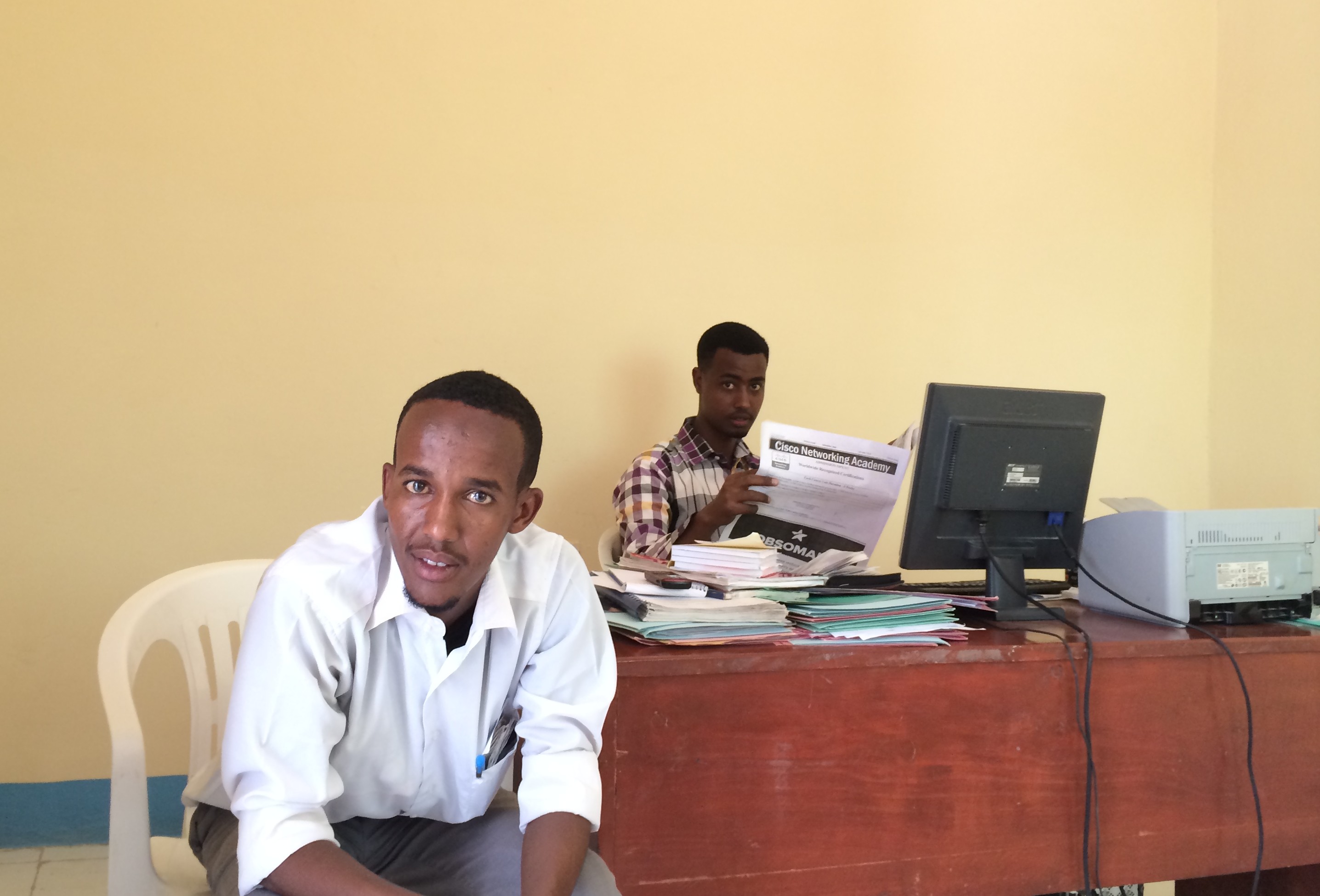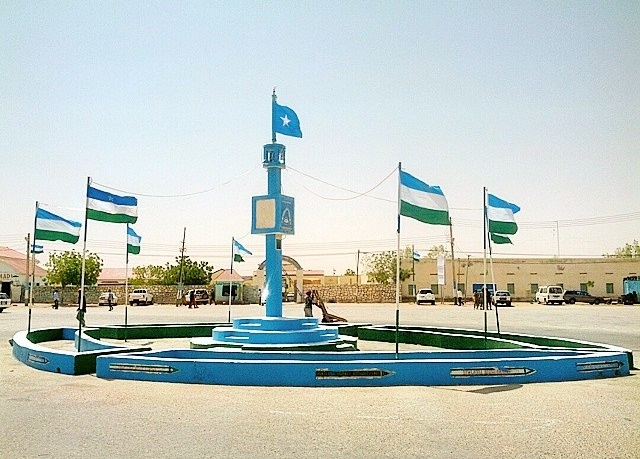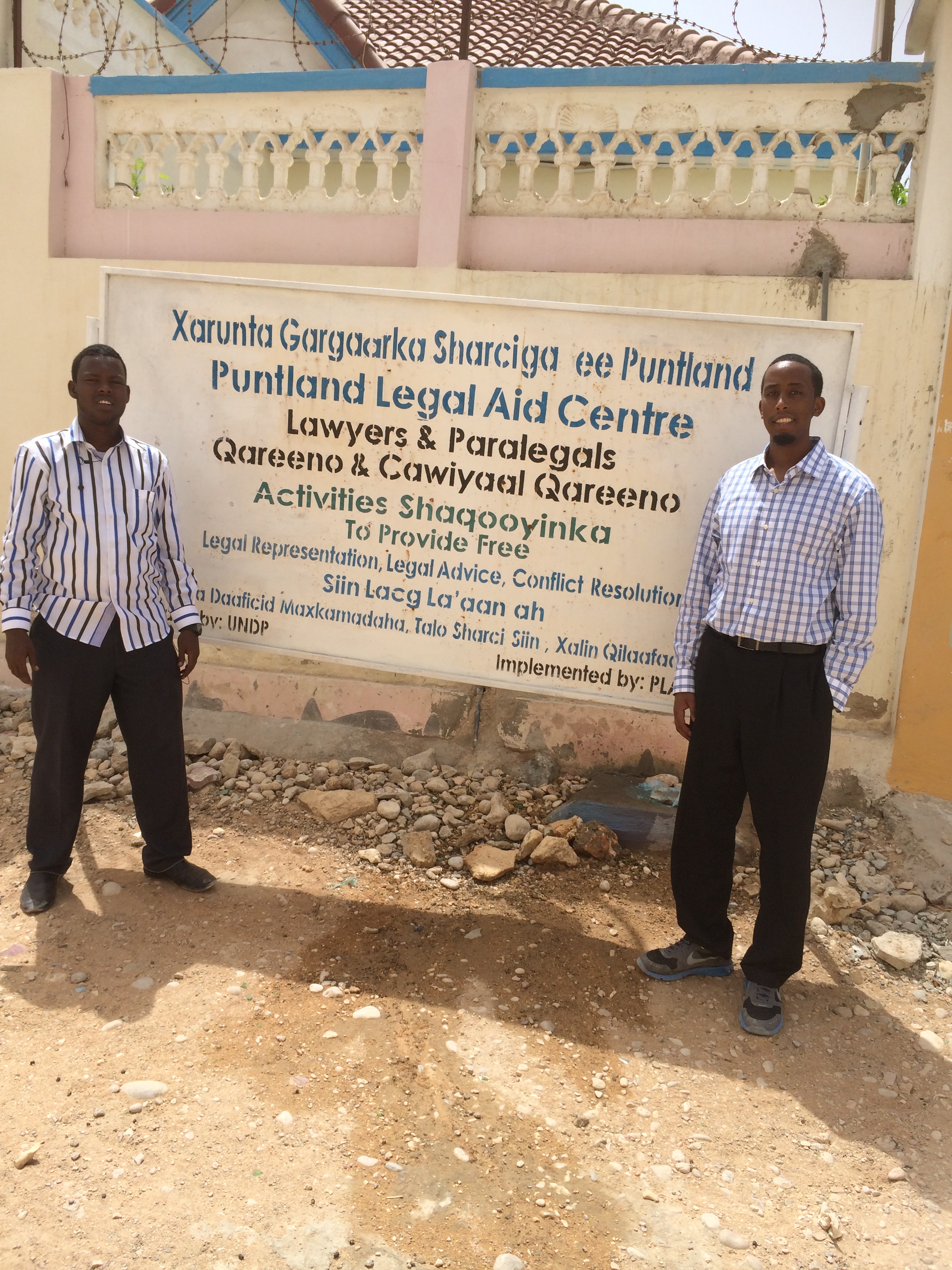By: Abadir Barre
Abadir Barre, 2L, worked at Puntland Legal Aid Center (PLAC) in northern Somali during the summer of 2014 as part of Washington University School of Law’s Global Public Interest Law Fellows Internship Program. This summer he will be working at the International Development Law Organization (IDLO) in Nairobi, Kenya as a Harris Institute Dagen-Legomsky Fellow.
Following the outbreak of the Somali Civil War in 1991, a grassroots constitutional conference was held in Garowe in 1998. The conference consisted of the region’s political elite, traditional elders, business community, intellectuals and other civil society representatives. The conference was convened to establish a governing regional administration in an effort to provide peace and stability to the region. The conference resulted in the establishment of Puntland State, a semi-autonomous state within Somalia.
Since 1998, the Puntland government has made tremendous strides in providing security, facilitating trade and investment, and building infrastructure in the region. Garowe was transformed from a small and sleepy town before the establishment of Puntland to a bustling capital city that hosts the UN and other international organizations. The Puntland Government has worked closely with international NGO’s to develop the region and provide services to its constituents.
One of the key Rule of Law projects that the United Nations Development Program (UNDP) implemented in Puntland was the establishment of the first law school at Puntland State University (PSU) in 2008. The UN and the Puntland government recognized that the absence of law school in the region was not only deteriorating the judiciary but was also threatening the future security of Puntland. The legal professionals and scholars that played an instrumental role in establishing Puntland in 1998 had passed away or nearing the age of retirement. Without any emerging legal professionals, it would be a challenge for the next generation to sustain peace and stability.
The first law school in Puntland has proven to be highly successful as it has increased the number of qualified legal professionals in the legal system. I saw this firsthand when I had the privilege of working at the Puntland Legal Aid Center (PLAC) in the summer of 2014. PLAC was launched in 2006 as the first legal aid clinic in Puntland. I interacted daily with a number of smart, qualified, and energetic young legal professionals who were proud to be lawyers severing their community. The positive impact of the legal education policy was felt both in the private and public sector as the young lawyers created their own law firms, worked with international organizations, and joined the Puntland government.
Unfortunately Somalia currently lacks an institution that offers an L.L.M. degree, but nonetheless the young lawyers maintained a strong desire to continue their legal education. They were very curious about my legal education in America, asking me countless questions ranging from what courses I took to what the bar exam is like. Many of the young Somali lawyers asked me if there were any opportunities for them to earn their L.L.M. degree in America. Seeing their enthusiasm to sharpen their legal skills was beyond inspiring.
Working with these young lawyers, I truly saw the power behind Nelson Mandela’s famous quote: “Education is the most powerful weapon which you can use to change the world.” Rule of Law experts say that it takes a generation to see the effects of Rule of Law reform; however the impact of the educational policy that created PSU Law School was felt within the first year of the initial graduating class. Obtaining a law degree provided these young Somalis a means to create their own business, advocate for justice, and have a stake in local government. Each graduating class has grown this army of lawyers to permeate throughout each city of Puntland and quite literally fight the good fight. The hope is that with each passing year the legal industry will be infused with new graduates, and the veteran lawyers will rise in the ranks and take leadership positions within the government and civil society.

Bukhaari, a lawyer who graduated in the first graduating class and Mohamed, who got a degree in IT at PSU, working at the PLAC office in Garowe.
I was blessed to have the opportunity to interact with the new generation of Somali lawyers. It gave me great optimism that there are hundreds of young legal minded Somalis that are eager to rebuild Somalia. I look forward to collaborating with them on Rule of Law initiatives in the future.


